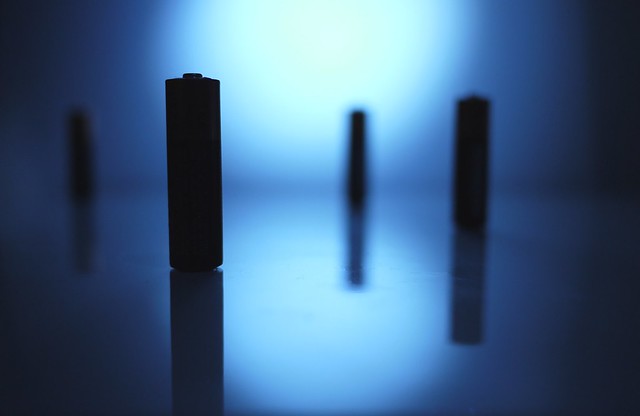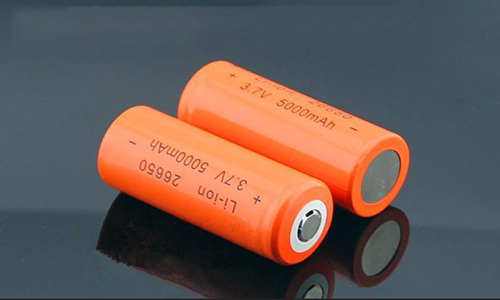Lithium In Batteries Same As Drug
Oct 10, 2019 Pageview:5851
Introduction
Lithium is essentially a metal, the lightest metal known to man. Lithium is light and soft - so soft it can be cut with a kitchen knife and so low in density that it floats on water. It has a wide range of uses, notably in the manufacture of aircraft, batteries (lithium and lithium-ion), heat resistant glass, ceramics, grease lubricants, flux additives for iron, steel and aluminium production. It also has uses in the medical sector.
Is lithium medication the same as lithium batteries·
Lithium as a compound component is very useful in the treatment of manic conditions and a wide range of related disorders as well as mental illnesses. These include depression, schizophrenia and eating disorders. In addition to this, it is also used to treat anemia, headaches, alcoholism, epilepsy and diabetes. Lithium works to regulate connections in the brain’s nerve cells, which is why it is such a great mood stabilizer. The lithium ion (Li+) imitates the sodium ion (Na+) in the body which greatly helps in treatment of mania.
Lithium as a metal on the other hand is used in manufacturing lithium batteries. These batteries are rechargeable which makes them commercially viable due to the possibility of using them over an extended period of time called the lifespan.
It is safe to say then that lithium as an element is used both in medication and in batteries. However it is utilized in medication as a compound which is lithium combined with carbonate or sulphate, while as an element (or metal) it makes up important component parts of the batteries like the electrolyte and electrodes.
Lithium is also a good conductor of heat and electricity. One reason why it is used as an important component of battery electrolytes and electrodes is because of its high electrode potential.
Why do we use lithium in batteries·
Lithium is used in batteries for a number of reasons namely:
· It is a good conductor of heat and electricity
· It has high electrode potential which makes it a great choice for battery electrolytes and electrodes. It easily gets current flowing through a battery.
· It is extremely lightweight than other metals like lead. This is a major advantage for small size objects like phones that are designed to be light.
· The detachable nature of lithium subatomic particles which aids the flow of current makes it possible to recharge the batteries.
· The use of lithium-ion (a variant of lithium) in batteries makes it possible to generate more voltage compared to alternatives previously used widely in the industry. A typical lithium-ion battery can generate 3 volts per cell compared with 2.1 volts for a lead-acid battery and 1.5 volts for a zinc-carbon battery.
Lithium: A metal that floats on oil and powers our phones
Lithium is a chemical element that occurs freely in nature (but only as ionic compounds) and is also a metal. Interestingly lithium has many interesting properties that makes it unique, which is why it is versatile and used in a wide range of applications. It is highly reactive and flammable and must be stored in mineral oil. It is the lightest metal as well as the lightest solid element that occurs in nature. Apart from helium and hydrogen, (as a solid) lithium is less dense (which means it is so low in density), than any other element as a liquid. This is a key reason why lithium can float on water (or oil for that matter).
The natural properties of lithium are harnessed and applied in the manufacture of lithium-ion batteries. These lightweight, rechargeable batteries are used almost exclusively as first choice in powering laptops, digital devices and especially smartphones. Lithium can store power without adding a lot of weight to devices. These batteries have some of the highest energy densities of any current battery technology as they deliver at least three times the voltage of Nickel-based batteries.
Nickel-based batteries experience a phenomenon known as the “memory effect”. Memory effect for a battery occurs when it is repeatedly plugged into to charge before it is fully depleted, this results in the loss of power capacity. Essentially, what happens is the battery will only remember half its capacity instead of its full capacity. Lithium based batteries on the other hand experience no memory effect whatsoever.
However, there are certain facts to note about lithium batteries that power our smartphones. Lithium based batteries which power smartphones and a host of other digital devices undergo aging. What it means in effect is that their lifespan tends to reduce with use. Each battery has a limited number of recharge/discharge cycles based on its design and inherent component properties. Once this number of cycles have been depleted the phone battery will die or be said to be used up. Once that happens all you can do is get a replacement for your lithium based battery.
The lithium based smartphone battery is actually the most important component in your smartphone, without the battery the smartphone cannot work. Therefore, it is of vital importance that you ensure you utilize your battery in such a way that the battery health (and thus its lifespan) is conserved as much as possible. If you can consistently achieve this with the right care and attention, your battery will stay charged for a longer period of time and last longer.
Lithium based batteries used in modern smartphones have been designed to be more reliable, longer-lasting and safer. Shorter cycles of charge and discharge tend to be more favorable to lithium based batteries in terms of longer lifespan. On the other hand draining your smartphone battery all the way down and topping it all the way up is definitely counterproductive. This shortens the battery’s lifespan appreciably. The ideal is to keep your phone usage between 50% – 80%, and to avoid (whenever possible), depleting it below 20%.
A great majority of smartphones and chargers in use today are designed to recognize a charging peak of 100% and accordingly reduce the flow of electricity to a trickle. Therefore, leaving your phone fully charged and connected to power overnight has no adverse effect on the battery.
- Prev Article: Lithium Deep Cell Battery
- Next Article: Lithium Polymer Batteries And Lithium Ion Batteries
Leave Message
Hottest Categories
-
Hottest Industry News
-
Latest Industry News











